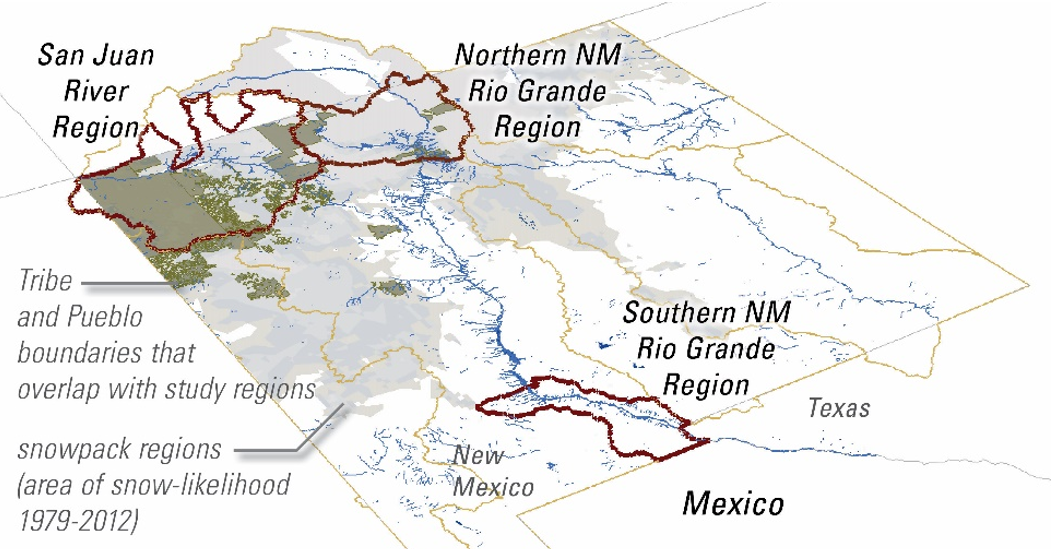eNews Adaptations
NM WRRI in Collaboration with ACES Receives USDA Grant to Support Agricultural and Water Resilience in the Southwest

Regions of working groups, paired field and water budget model studies, and Agricultural and Water System Resilience Models (AgWaSystems Models) with diverse climates and water conditions. The three regions face water storage crises typical to the Southwest. Reduced surface water supplies from frequently diminished snowpacks over the last two decades of mega-drought has resulted in an over 26% decrease in irrigated agriculture in New Mexico.
By Emily Goulet, NM WRRI Communications Student Assistant, & Connie Maxwell, PhD, NM WRRI Postdoctoral Researcher
Water scarcity is one of the largest challenges to agricultural resilience in the increasingly arid Southwest. Organic production and traditional practices emphasize the broader ecosystem and longer-term planning, which is likely critical for addressing climate challenges. A central question of this work is if expanding organic and traditional systems can support small farms to achieve the water demand reductions needed for preserving cultivation across agricultural valleys while also achieving overall agricultural resilience. This research is part of a project titled, Expanding Organic Systems to Reduce Water Demand and Increase Agricultural Resilience in the Southwest, and has been funded by the USDA National Institute of Food and Agriculture (NIFA). NM WRRI is leading the project in collaboration with NMSU’s College of Agricultural, Consumer, and Environmental Sciences (ACES) Agricultural Experiment Stations at Farmington and Alcalde, Plant and Environmental Sciences, Agricultural Economics, and Center of Excellence in Sustainable Food and Agricultural Systems to identify pathways to agricultural and water resilience for arid and semi-arid small farms.
This project is focused on the arid and semi-arid climates of three regions within New Mexico, including the Northern Rio Grande Basin Region, the Southern Rio Grande Basin Region, and the San Juan River Region. The project focuses on collaboration through building regional learning communities to collect traditional and local knowledge, co-produce tools, and share innovative strategies. An interactive website will additionally serve as a learning tool for producers, policy-makers, and the public. With the regional learning communities, the team will then identify farmer selection criteria for organic and traditional crops and practices that can excel in current and projected climate changes. Analyses will include crop and practice attributes, markets, and costs. Selected crops will then be tested in the paired field and water budget studies that assess yields, water use, and farmer needs compared to non-organic approaches. Finally, the team will identify combinations of strategies that can achieve regional resilience. The team will adapt existing decision-support models to assess the regions’ water, agro-ecological, and socio-economic system dynamics.
